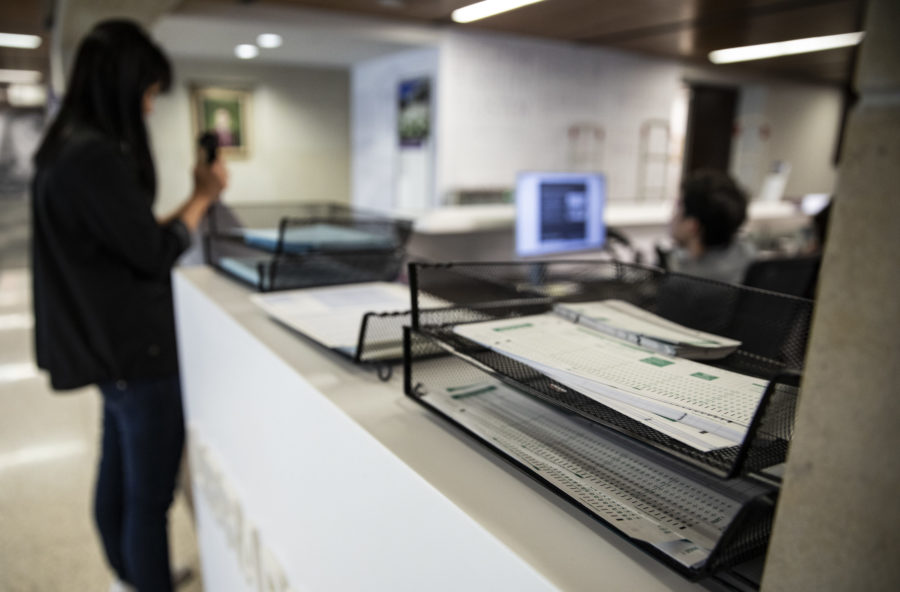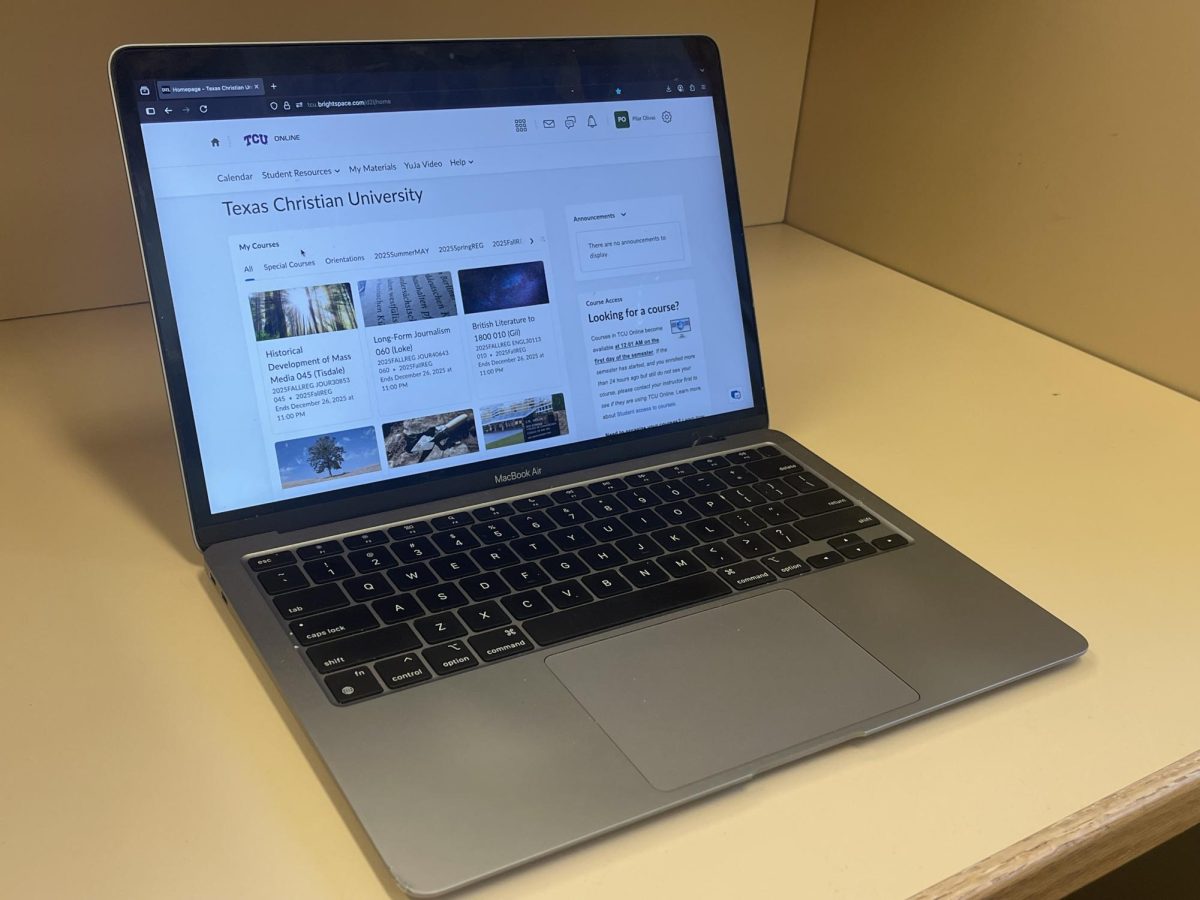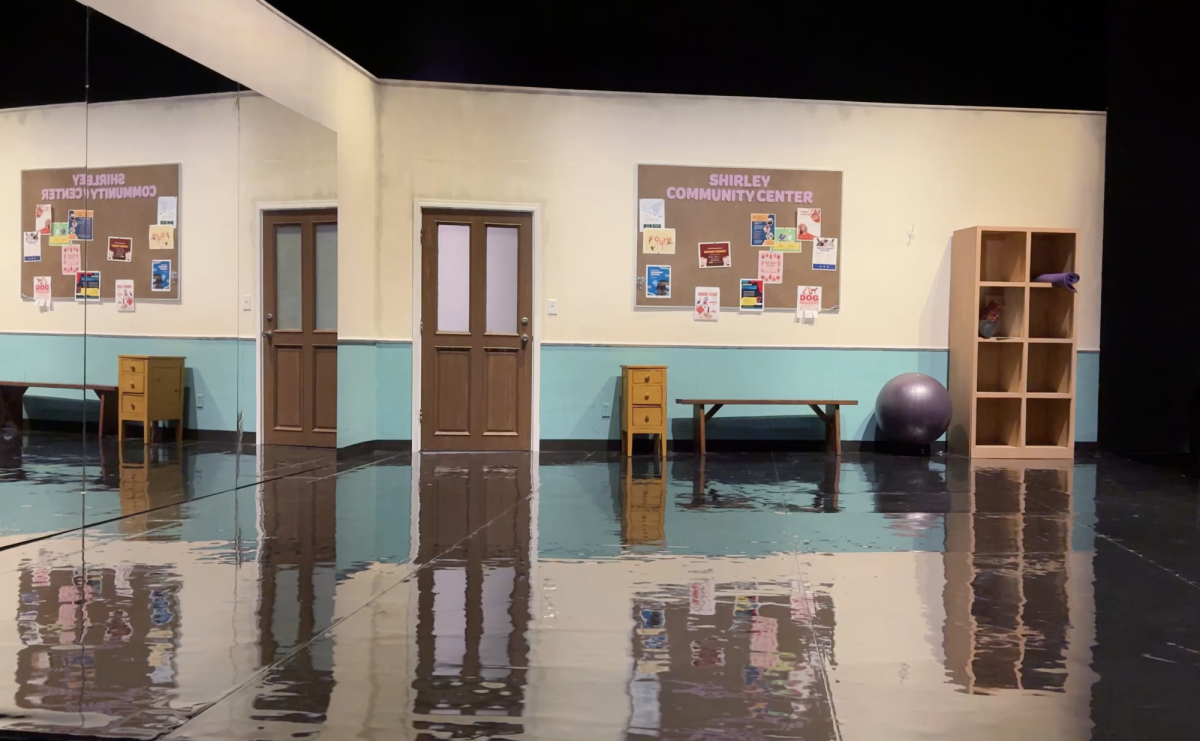TCU’s Student Government Association (SGA) is considering reducing or eliminating Scantrons in favor of electronic tests, their academic affairs chair said.
The initiative, which is still just an idea, reflects TCU’s attempt to become more sustainable, as moving away from Scantrons would decrease the amount of paper used on campus, said Abby Vernacchia, SGA’s chair of academic affairs.
Vernacchia and Josh Witkop, SGA’s president, have been meeting with different departments to accumulate data on Scantron usage. After meeting with the provost, Dr. Teresa Abi-Nader Dahlberg, who told them they needed more faculty support, they presented the idea to the Faculty Senate.
Vernacchia said she and Witkop are working with some professors who might try to eliminate Scantrons, and they are continuing to gather information from the Harris College of Nursing & Health Sciences, which uses only electronic tests.
The two have been discussing the pros and cons of making the switch, including weighing the costs and benefits and determining the best way to introduce the notion to SGA.
However, a vote in favor from SGA would not be enough to fully eliminate Scantrons testing, Vernacchia said.
“At the end of the day, we in SGA cannot force faculty to adopt this,” Vernacchia said in an email. “We can only suggest and see if we can get faculty to adopt this method.”
Removing Scantrons would directly affect both faculty and students.
Dr. Susan Watson, an instructor of three economics courses, uses Scantrons as one form of testing. Although Scantrons allow Watson to grade large quantities of assessments quickly, she said eliminating this method of testing would not have a significant impact on her classes, as she already utilizes forms besides Scantrons.
“I can adapt,” she said. “It’s not a problem for me.”
In fact, Watson said she had previously considered switching to electronic assessments, but that her students expressed a preference for physical tests.
“They liked to have the piece of paper in front of them,” Watson said. “They liked to have that physical text printed out so they can flip through it, rather than doing it on their laptops.”
Dr. Scott Langston, an instructor of religion, said his students have discussed a preference for certain types of questions over others, but they have not indicated which method of testing they like best.
Langston, who teaches four classes each semester, said he uses Scantrons in his introductory-level courses, though like Watson, he assesses his students in a variety of ways, including essay questions.
The religion instructor said Scantrons allow him to more quickly grade large quantities of tests, and if Scantrons were removed, he would have to spend more time grading assignments.
Langston said he supports the push for sustainability that drives this initiative to eliminate Scantrons.
“I’m for anything that’s more sustainable,” Langston said. “I’m very concerned about the environment, and we have to find more ways to bring about sustainability.”
A few students expressed their own feelings about Scantrons.
Biology major Hannah Deerman said she appreciates how quickly Scantrons can be graded, but she noted that even if Scantrons were no longer used, she would most likely still have multiple-choice tests.
Petr Nguyen, a pre-business major who uses Scantrons in all his classes this semester, said he likes that Scantrons do not require him to write extensively. If this type of testing format was eliminated, Nguyen said online assessments would be a good alternative.










